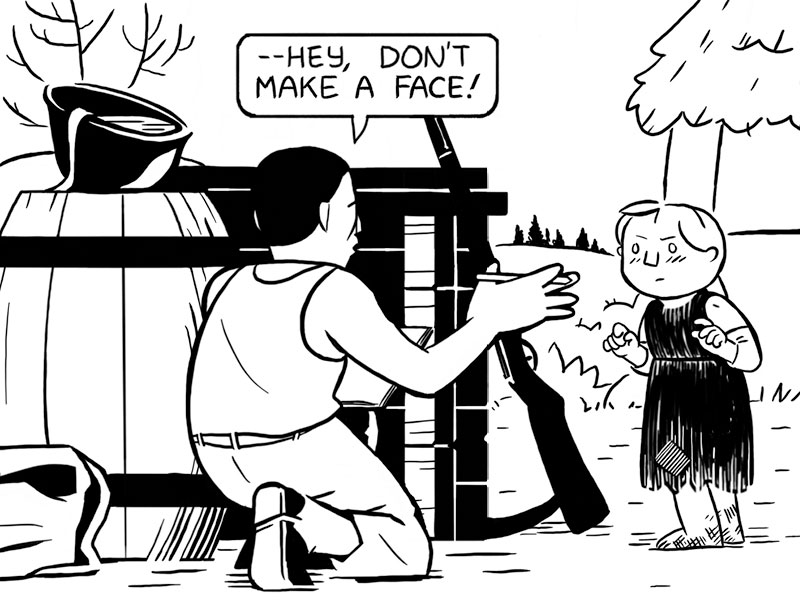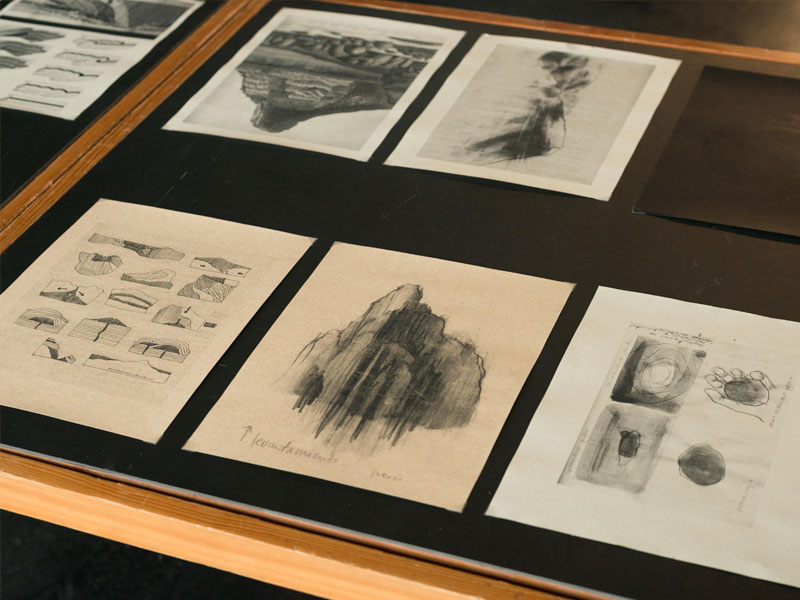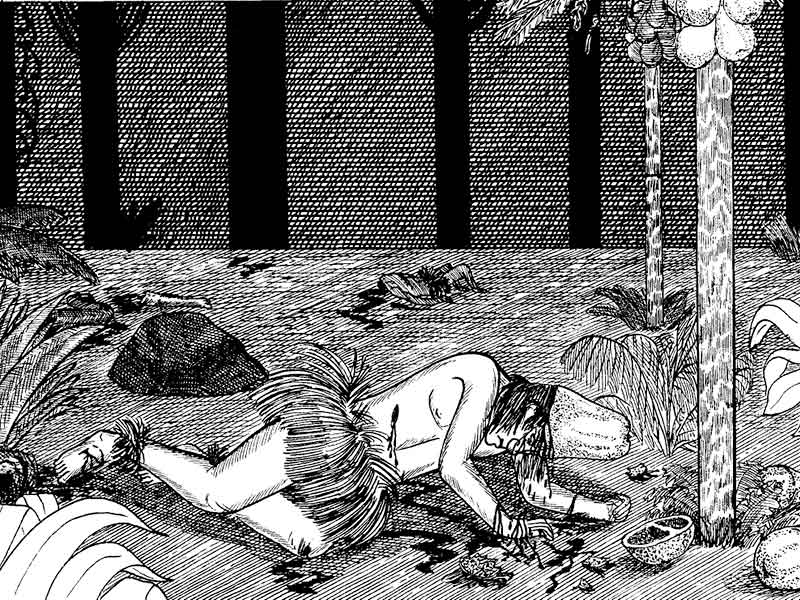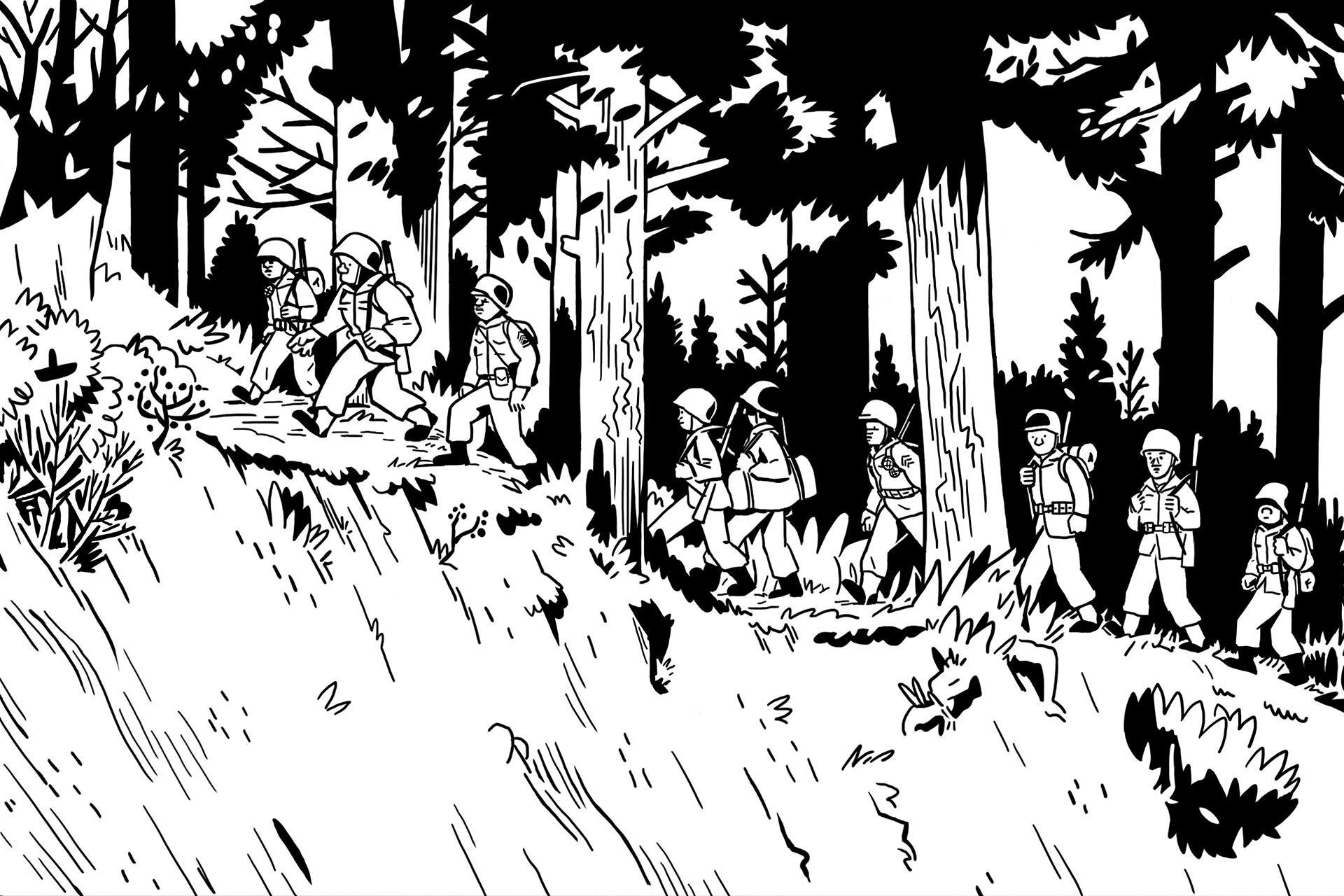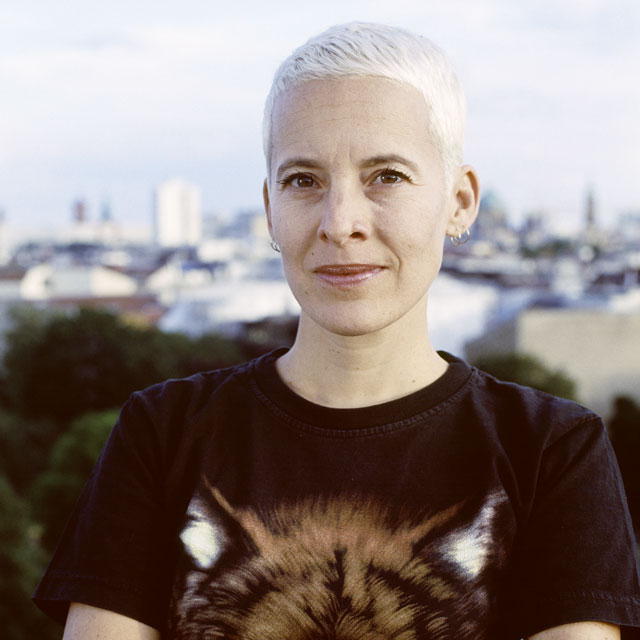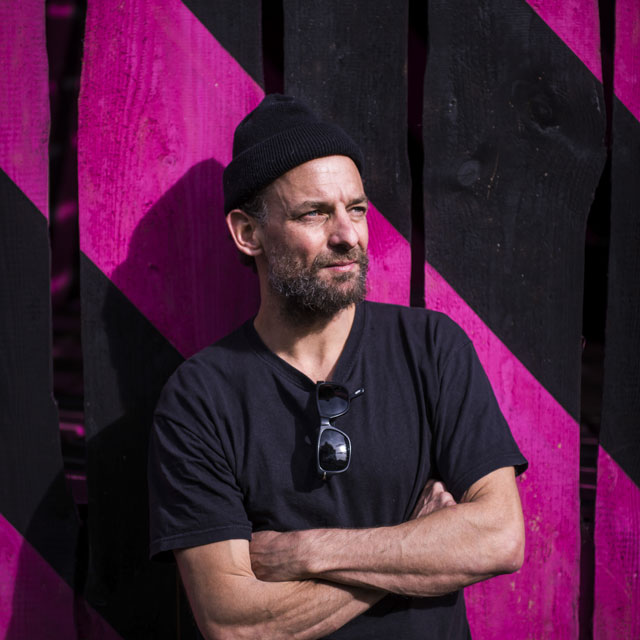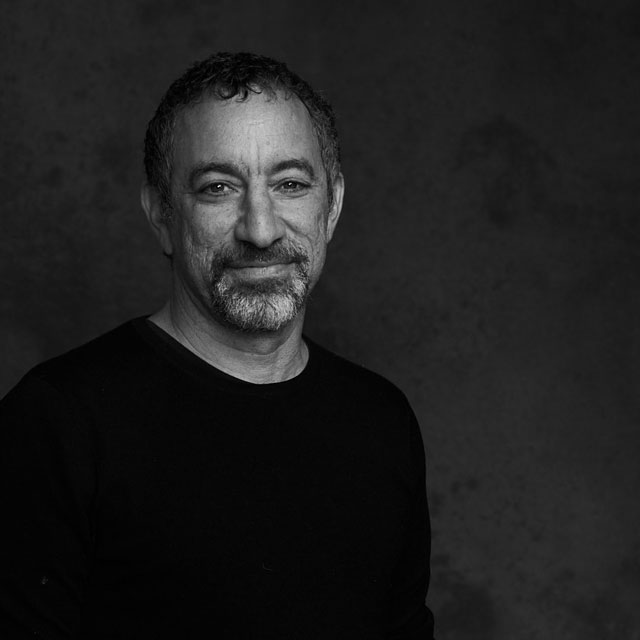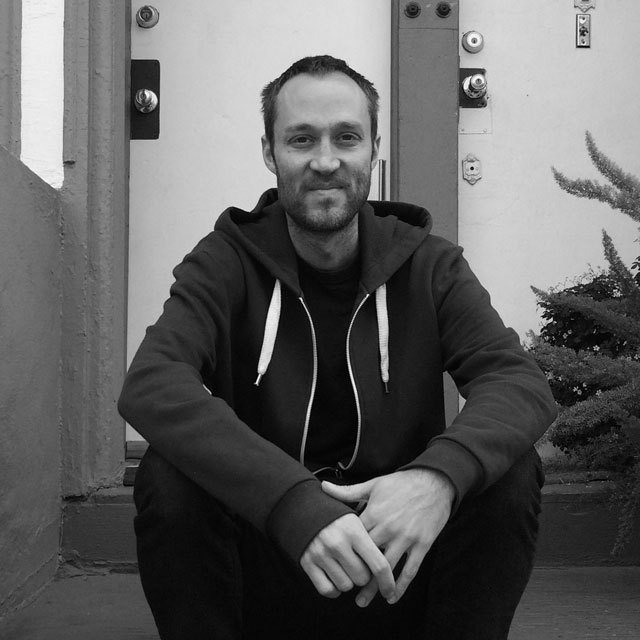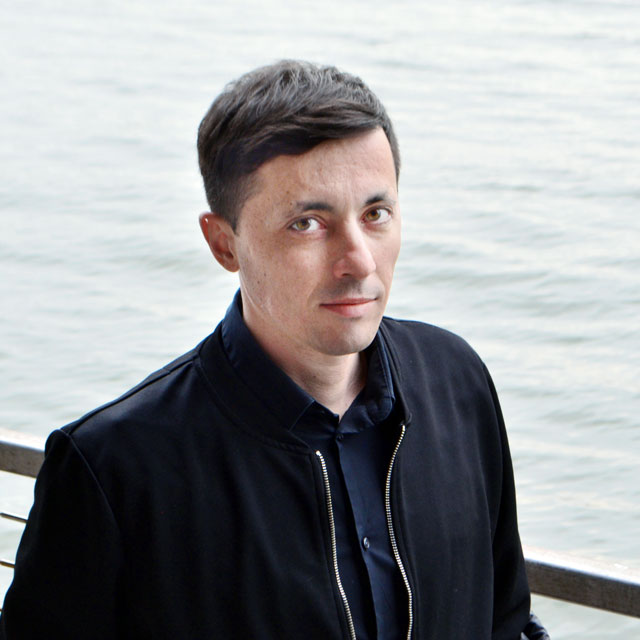“I like work with more than one emotional register. If it’s funny, it should also have some depth; if it’s conceptual, it should nevertheless have some warmth.”
Anders Nilsen is the author of Big Questions, Don’t Go Where I Can’t Follow, The End, and several other graphic novels and comics books. He works in a variety of traditional and experimental visual and narrative modes. His work has appeared in Kramers Ergot, The New York Times, Poetry Magazine, The Believer and elsewhere, and has been translated widely. Nilsen is a regular participant and sometime organizer of the experimental collaborative comics residency Pierre Feuille Ciseaux, and does occasional work as a curator and illustrator. He is the recipient of three Ignatz awards as well as the Lynd Ward Graphic Novel Prize. Nilsen is currently serializing a long-form, full-color graphic novel retelling the myth of Prometheus, set in present-day Central Asia, called Tongues.
“The book is part adventure story, part meditation on human nature and language,” he explains. “I’m interested in the human mind and evolution, I’m interested in the arc of human history, and I’m interested in the seduction of dystopian and apocalyptic storytelling.”
As a mentor, he is looking forward to receiving applications not only from cartoonists and comic artists, but also from anyone with a strong narrative element to their work, or anyone who incorporates bookmaking into their practice. “It’s important that a prospective mentee has some interest in how their work will engage its audience. I’m also seeking work that deals with the world in some way, that tackles real questions that matter to people.”

He is a staunch believer in the 10,000-hour rule: the only way to get good at something is to do it over and over. Yet working with a mentor can offer some structure and the occasional reminder or encouragement to stay true to one’s own vision; “something that isn’t always that easy to do,” he adds.

According to Nilsen, drawing is about paying very close attention; watching a thing closely and trying to replicate it on a page. In that respect, “you don’t always decide what you want to do. Rather, you pay close attention to where your interests are pulling you and follow them,” he explains. “If you know exactly what you’re doing at the outset, you’re probably on the wrong track.”
On that note, he says, “If you don’t think any of the above applies, but are still interested, apply anyway! I like being surprised and wouldn’t mind working with someone who wants to argue a bit.”
See more of Anders Nilsen’s work


